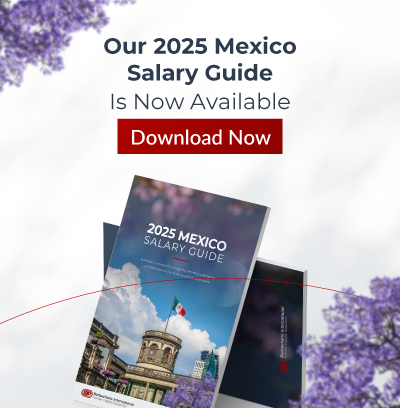
Across the U.S. and Mexico, manufacturing is changing fast. Companies aren’t just dealing with one challenge, they’re facing a mix of labor shortages, shifting demographics, nearshoring pressures, and growing unpredictability around trade policy. It’s making leaders pause and think more carefully about who they’re bringing on board.
In the past, manufacturers could count on a steady stream of talent and low turnover on the floor. That’s no longer the case. Today’s environment is more demanding, less predictable, and moving quickly. If you’re operating in North America, this isn’t something you can plan for later; it’s already here.
A Tighter, More Complex Labor Market
While nearshoring continues to attract new investment into Mexico and border states like Texas and Arizona, the surge in demand hasn’t been matched by a strong enough pipeline of skilled labor. According to the U.S. Chamber of Commerce, 74% of manufacturers report difficulty finding qualified workers, a challenge also reflected across Mexico’s booming industrial corridors.
Rising wages, an aging workforce, and changing skill needs are only part of what companies are up against. On top of that, global politics are adding more pressure. With Donald Trump back in office and trade tensions heating up again, many leaders are feeling the strain. The constant talk of new tariffs on China and Mexico, on-again and off-again tariff talk, and lingering questions around the future of the USMCA, are forcing companies to make careful hiring decisions, often faster than they’d like and with less clarity than they need.
In Mexico, industrial hubs like Monterrey and Querétaro are struggling to keep up with demand, not just for line workers, but for bilingual, bicultural leaders who can operate effectively across regions. The need isn’t just for talent anymore. It’s for alignment, adaptability, and cross-border competence.
Strategic Talent Planning Is Now a Priority
We’re hearing a different kind of urgency from our clients from the maquiladoras of Tijuana and Juarez to manufacturing hubs across the U.S. Midwest and Southeast. Hiring isn’t just about headcount. It’s about being prepared for what’s next.
With trade tensions resurfacing, reshoring efforts picking up speed, and tariffs back on the table (at least for now), leadership teams are reassessing what kind of workforce will keep them resilient. Economic nationalism is changing the rules.
For years, many companies counted on smooth, predictable cross-border operations. That stability is now harder to find. Delays, sudden policy changes, and new pressure points are pushing leaders to act quickly, often without a full picture.
At Barbachano International, we’re seeing it firsthand. We’re not just helping clients fill roles, we’re helping them figure out what kind of leadership and management they truly need to move forward in this new reality.
Leadership Skills That Matter More Than Ever
The leaders who will thrive in this environment are the ones who bring more than technical skills. They’re the ones who can lead through uncertainty and stay grounded as expectations shift.
Some of the qualities in high demand include:
- Experience managing through disruption
- Cross-cultural fluency and regional insight
- Strong communication skills to engage multigenerational teams
- Operational flexibility and an eye for innovation
- A people-first mindset, especially around retention and development
The most successful companies we work with aren’t just hiring plant managers or directors. They’re building leadership teams that can adapt to change, lead across cultures, and stay focused on both performance and people.
Real-World Response: What Companies Are Doing
A global auto parts manufacturer recently approached us in search of a VP of Manufacturing for their underperforming plants in Saltillo and Silao, Mexico. But this wasn’t just about KPIs. Their new U.S. clients expected more supply chain transparency, and incoming tariffs meant their operations needed to be leaner and more responsive.
We didn’t focus only on candidates with automotive experience. We looked for leaders who had worked in tariff-sensitive environments, built cross-functional teams, and navigated both U.S. and Mexican regulations. That broader approach made all the difference. Not only did we fill the role, but our client exceeded their operational improvement goals within six months.
Where Manufacturing Leadership Must Go Next
The geopolitical landscape will keep shifting, especially with elections and trade negotiations underway. For manufacturers, uncertainty is the new constant.
The companies that come out ahead won’t be the ones with the most advanced systems or largest facilities. They’ll be the ones with leadership teams that understand the broader context, can guide diverse workforces, and can shift strategy without losing sight of people or results.
This moment isn’t just about filling jobs. It’s about strengthening the core of your organization with leadership built for complexity. If your talent strategy isn’t evolving with the times, you may already be behind.

By Fernando Ortiz-Barbachano
President & CEO of Barbachano International
Barbachano International (BIP) is the premier executive search and leadership advisory firm in the Americas with a focus on diversity & multicultural target markets. Since 1992, BIP and its affiliates have impacted the profitability of over 50% of Fortune 500 Companies. BIP has been recognized by Forbes as Americas’ Best Executive Search Firms and currently ranks #8 and #3 on the West Coast.

